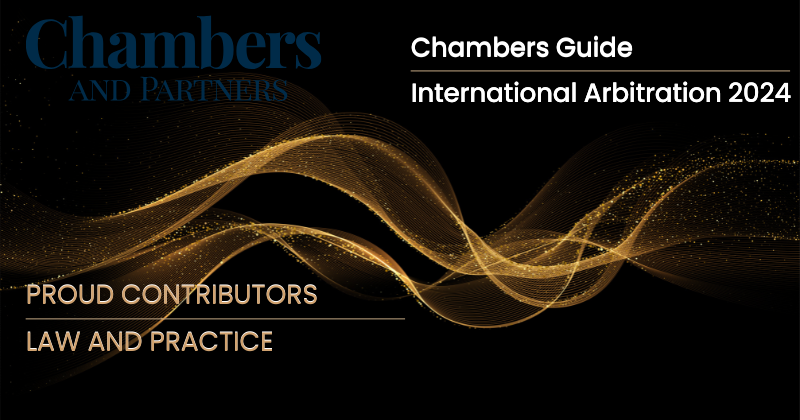Introduction
Disputes are prone to arise in the course of construction projects. It is in the various parties’ interests (be it the employer, main contractor, sub-contractor, architect, quantity surveyor etc.) that such disputes are speedily resolved so as to ensure that the construction project does not slow down or fall off the track altogether. Adjudication is one of the foremost alternative dispute resolution (ADR) mechanisms used to settle disputes as and when they arise, and whose efficacy is most pronounced in the construction industry.
Article 159 (2) (c) of the Constitution of Kenya, 2010 (the Constitution) provides for the use of ADR mechanisms such as reconciliation, mediation, arbitration, and traditional dispute resolution mechanisms. Though not expressly mentioned, adjudication is one of the modes of ADR contemplated under Article 159 (2) (c) of the Constitution, and which the Courts are called upon to promote.
What is Adjudication?
Adjudication refers to a means of dispute resolution where a neutral person to the dispute, known as the adjudicator, considers the dispute between the parties and makes an interim but speedy determination that enables the contractual relationship (invariably of a construction nature) to continue. The Adjudication Rules of the Chartered Institute of Arbitrators, (Kenya Branch) describe adjudication as “a dispute resolution procedure based on the decision-making power of an impartial, third party neutral natural person known as an adjudicator to reach a fair, rapid and inexpensive decision upon a dispute arising under a construction contract.”
Adjudication can also be termed as a private dispute resolution mechanism whereby two or more parties agree to resolve their current or future disputes through an adjudication process, as an alternative to litigation. Parties by mutual agreement thus forego their lawful right to have their disputes determined by the Courts.
An adjudication clause gives contractual authority to an adjudicator to determine disputes between the parties, which may either be binding or temporary in nature depending on the wording of the adjudication clause. Adjudication is thus viewed as an alternative to the Court process, the latter of which is ordinarily lengthy and costly, and rarely spares the relationship between the parties.
Who are the parties to Adjudication?
The parties to an adjudication process consist of the various professionals in a construction project such as the contractor, sub-contractors, the employer, the architect, the quantity surveyor amongst others. The adjudicator, who is usually an expert in the construction industry, considers and settles the dispute within a short period of time, typically twenty-eight (28) days.
Parties to a contract who wish to refer their dispute to an adjudication process, should include adjudication as the form of dispute resolution in the contract. The most common contracts in the construction industry which adopt adjudication as a form of dispute resolution are the agreements and conditions of contract for building works popularly known as the Joint Building Council (JBC) contracts, New Engineering Contracts (NEC) and the Fédération Internationale Des Ingénieurs-Conseils (FIDIC) contracts. FIDIC is the French language acronym for the International Federation of Consulting Engineers.
When can Adjudication be initiated and by whom?
Adjudication can be initiated by any party to a construction contract which contains an adjudication clause, at any time a dispute arises in the course of the construction contract. The dispute must arise from the construction contract and the contract must contain an adjudication clause. The inclusion of an adjudication clause in construction contracts, including JBC, NEC and FIDIC contracts, has become common-place due to the desire by the parties to steer clear of Court process and resolve their disputes expeditiously. The adjudication clauses may differ in content in various contracts, however, despite certain differences, these clauses retain the general form which provide for:
• Possible disputes that may arise between the parties during the construction
• Timeframe for the resolution of the dispute
• Appointment of the adjudicator
• Place of adjudication
What is the process of Adjudication?
When a dispute arises in a construction contract containing an adjudication clause, the aggrieved party commences the adjudication process by notifying the other party in writing of its intention to refer the dispute to adjudication. This notice should typically include details such as:
• The date and details of the contract between the parties
• The issues which the adjudicator is expected to determine
• The nature and extent of the redress sought
• A statement confirming that the dispute referral procedures in the construction contract have been complied with within the period of the notice
Thereafter, the responding party, upon receipt of the notice, may participate in the appointment of the adjudicator within the notice period. Sometimes, parties to a construction contract may include the name of the adjudicator in the construction contract. If an adjudicator’s name is provided for under the adjudication clause, the parties may request the adjudicator to initiate the adjudication process. If an adjudicator is not named under the construction contract, the referring party should request the appointing authority or body stated in the contract to appoint an adjudicator within seven (7) days of receipt of the request and proof of payment of the appointment fee.
Adjudication is the preferred method of resolving disputes in the construction industry as it is speedy, cost-effective and allows the construction projects to proceed even as the adjudication goes on.
The appointment of the adjudicator is formalised on the signing of an adjudicator’s agreement with the parties. Once the adjudicator is appointed, the party that initiated the adjudication process sends him and the responding party a full statement of the case including a copy of the notice of adjudication, a copy of the contract and copies of the documents in support of the statement of case. Once the responding party receives the statement of the case, the said party is required to submit a response.
Adjudication follows a very strict timetable and therefore parties are subjected to fairly short timelines since the adjudication process is ordinarily meant to be concluded within twenty-eight (28) days or within such other period as might be agreed to by the par- ties. It is the speedy and cost-effective nature of adjudication that makes it ideal for construction projects, which are themselves time sensitive.
The adjudicator is required to act fairly and within the rules of natural justice, to follow the rules of procedure outlined in the contract, be impartial and give a written decision within twenty-eight (28) days or such other period as might be agreed by the parties. The strict rules of evidence ordinarily do not apply. Where the parties are dissatisfied with the adjudication and depending on the adjudication clause, the matter might be referred to arbitration or Court. It is for this reason that adjudication is sometimes viewed as interim or ephemeral.
The decision made by the adjudicator is legally binding upon the parties, albeit with room to challenge it as indicated above. The adjudication decision can only be challenged or set aside in Court or through arbitration. This will however depend on whether the parties have incorporated an appeal process or a clause to set aside the adjudicator’s award. The parties will normally meet the costs of the adjudicator upon conclusion of the adjudication process.
Conclusion
Adjudication is the preferred method of resolving disputes in the construction industry as it is speedy, cost-effective and allows the construction project to proceed even as the adjudication goes on. Adjudication is a markedly expeditious dispute resolution process since disputes are resolved in approximately a month’s time, thus translating into reduced costs, as compared to litigation or arbitration, which typically take longer to conclude. Like arbitration, adjudication is a private and confidential process hence the adjudicator’s decision will be confidential to the parties. During the adjudication process, the parties enjoy a form of control over the resolution of the dispute since adjudication can be instituted at any time during the construction project. It is an added advantage that an adjudicator is typically selected from a pool of experts, who ordinarily have vast expertise in the subject matter of the dispute.
It is noteworthy that the use of adjudication as a form of ADR has been growing rapidly particularly in the construction industry, where it has increasingly been adopted as the preferred form of resolving disputes. There is thus a need to create greater awareness of adjudication as a method of dispute resolution in other fields beyond the construction industry, for the advantages which it carries. Perhaps it is high time that adjudication was incorporated as a compulsory method of dispute resolution in Kenya, to emulate countries such as the United Kingdom, Australia, New Zealand, Singapore and Hong Kong which have made adjudication a mandatory method for resolving disputes in the construction industry.





